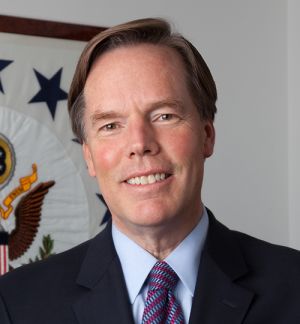Overview
In his Nov. 25 Boston Globe column, “Arab Awakening, Act 2”, Nicholas Burns warns that, nearly one year since the start of reform and revolution across the Arab world, the region may turn more turbulent and violent in the months ahead. In Syria, Bashar al Assad’s brutality has turned peaceful protestors into an incipient rebel army. The civil war that is now unfolding has potentially grave consequences for Lebanon, Israel, Iran and the rest of the region. The continued crises in Egypt, Yemen and Bahrain add to the challenges for President Obama who has supported reformers in Cairo, Tunis and Tripoli while carefully maintaining ties to more conservative leaders in the Gulf. This U.S. balancing act may now become more difficult in the year ahead.
Think of the revolutions in the Middle East as Act 1 in a five-act play that may not conclude for a generation or more. Nearly a year since protests in Tunisia ignited a regional wave of reform and revolt, the euphoria and hope of last January has turned to frustration and cynicism as Egyptians battle their military government in Cairo and sectarian war in Syria intensifies. The Arab world may be heading for an unpredictable and violent Act 2 in 2012.
Egypt claimed center stage this week as thousands of protesters confronted security forces in iconic Tahrir Square to vent their anger at a ruling military committee intent on protecting the power it has held since the Egyptian Revolution of 1952. The military responded with a hail of bullets, killing protesters and throwing the country into its most serious crisis since the fall of President Hosni Mubarak.
At the same time, the Muslim Brotherhood and other Islamic parties are now expected to win the parliamentary elections on Monday. They are well organized, disciplined, and awash in cash - in contrast to the more numerous democratic parties that have failed to unite under a single banner and will likely split the vote of those Egyptians who support a more secular and liberal future.
What should the United States do to help calm the crisis in Egypt? The Obama administration rightly views Egypt as the key country in the Middle East drama, and has cobbled together over $1 billion in assistance to support the reform effort. But this is well short of what the reformers need and is far outweighed by the more than $100 billion we will spend in Afghanistan -a country far less important to us than Egypt. Meanwhile, the United States has considerable influence with the military leadership and is urging restraint, as well as trying to keep the elections on schedule.
The international focus is also on Syria, where an increasingly embattled Bashar al-Assad has used brutal force to kill thousands of largely peaceful demonstrators over the last six months. The majority Sunni community is taking up arms against the government, catapulting the country into a potentially catastrophic civil war.
Despite the killings, the Obama administration is unlikely to intervene militarily in Syria. None of the conditions that led to the NATO mission in Libya are present in Syria. The Arab League won’t invite NATO in, the UN Security Council won’t bless it, and there is no organized opposition to assist. Surprisingly, US ally Turkey has cut ties with Assad and given sanctuary to an incipient Syrian rebel force. The United States and Europe may be content to let Turkish Prime Minister Recep Tayyip Erdogan lead international efforts at a time when his influence is rising rapidly.
All this amounts to a profound shift in the future of the Middle East. Outsiders like the United States wield some influence but are not in any way in control of a tsunami of change. If Syria descends into chaos, Israel may have to live with a less stable border on the Golan Heights, and Lebanon might once again be a victim of its violent neighborhood. If Islamists come to power in Egypt, the Camp David accords upon which Israel depends for a large measure of its security could be weakened. And, if the wave of change reaches Saudi Arabia and other wealthy Gulf states, US interests will be at further risk.
These dramatic events raise several questions for the United States and other regional powers. Will Turkey emerge as the power broker and big winner as a result of these revolutions? Will Israel be the biggest loser? Will the wave of reform hit the Palestinian leadership in the West Bank and Gaza and even Algeria next? Will thousands of refugees from the Yemeni war flood into Saudi Arabia and its Gulf neighbors?
The old Middle East is vanishing. A new one is forming in the crucible of war and revolution. The stakes could not be higher for the United States. Since the revolutions began, President Obama has skillfully balanced support for reformers in Cairo, Tripoli, and Tunisia while maintaining ties to conservative Gulf leaders at the other end of the region. As he walks that precarious tightrope in the full glare of the international spotlight, there are more difficult challenges ahead as Act 1 closes and Act 2 begins in the Arab Awakening.
Nicholas Burns is professor of the practice of diplomacy and internatonal politics at Harvard’s Kennedy School of Government. His column appears regularly in the Globe.
Burns, Nicholas. “Arab Awakening, Act II.” The Boston Globe, November 25, 2011





